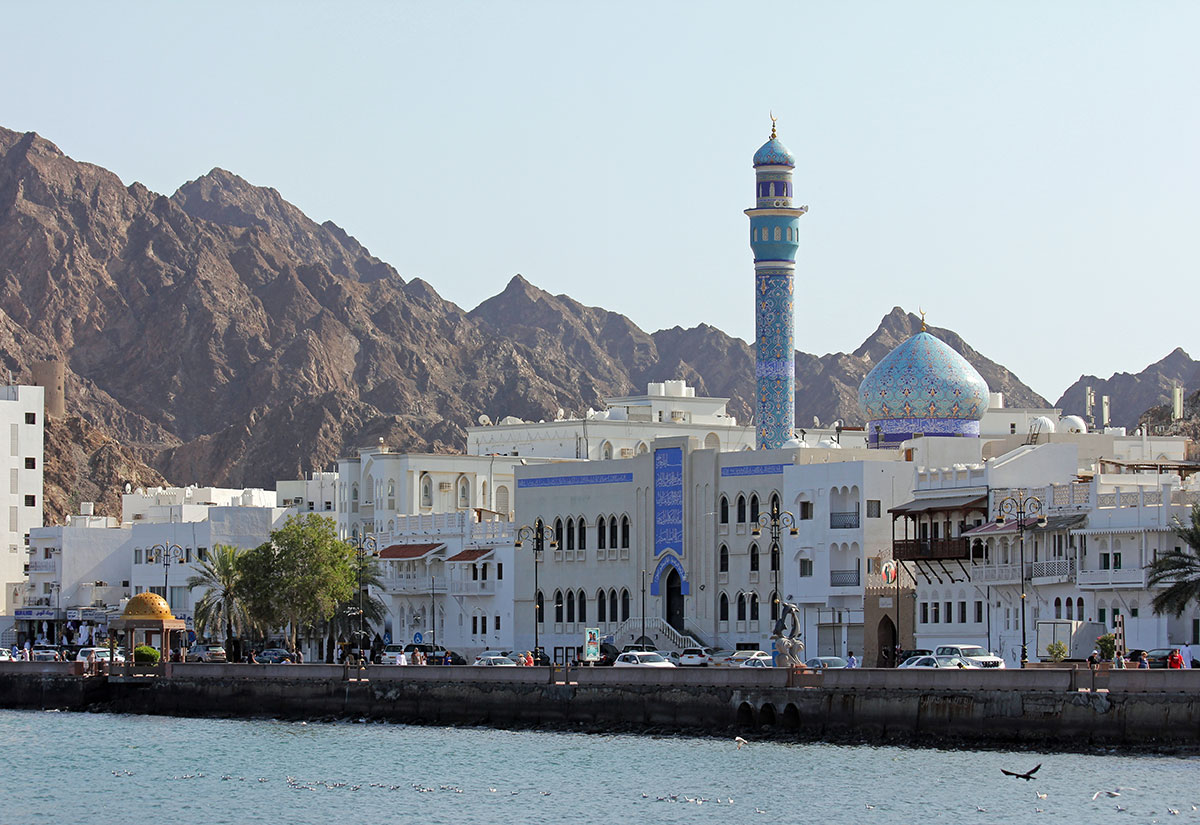
Sultanate has lifted its arrival ban for vaccinated travellers and will reopen its land borders with the UAE from September 1
Pfizer/bioNTech, Oxford-AstraZeneca, Moderna, Sinovac and Sputnik are among the coronavirus vaccines approved by Oman.
Oman’s struggling tourism sector, which has taken a hammering as a result of the global coronavirus pandemic, is set to receive a massive shot-in-the-arm as the sultanate prepares to reopen its land borders with the UAE from the start of next month.
And a leading industry expert has told Arabian Business he expects the benefits of reopening to be felt on both sides of the border.
Oman recently lifted its arrival ban for fully vaccinated individuals from 18 countries, including India, Pakistan and Bangladesh.
“The reopening of the borders and easing of travel for Omanis in the last few months is also a good sign for the Dubai hospitality market. Omanis have always been a very important source market for the city,” said Bruno Trenchard, senior manager, Hotels and Hospitality, CBRE Middle East.
“The Expo should be a good catalyst to increase visitors from Oman as it will have a variety of offerings, which I believe will be especially appealing to Omani families,” he added.
 Bruno Trenchard, senior manager, Hotels and Hospitality, CBRE Middle East.
Bruno Trenchard, senior manager, Hotels and Hospitality, CBRE Middle East.
The decision to reopen came following a substantial decrease in coronavirus infections across the country, according to the sultanate’s Covid-19 committee’s latest press briefing.
“The land borders between Oman and the UAE will be open on September 1. People who will be travelling from the two countries using the land borders will need to be vaccinated and will be required to do PCR tests too,” said Dr Said Al Abri, director general of disease control at the health ministry.
All travellers must present their vaccination card, indicating that they have received two doses of a vaccine approved in Oman, as well as a pre-travel negative PCR test result.
The test should be conducted 96 hours prior to the scheduled time of arrival for international flights of more than eight hours and 72 hours for shorter flight.
Speaking about the impact of the reduced travel restrictions on Oman’s tourism sector, Trenchard said: “It’s great to see Oman on the path to a full re-opening. The country is a great regional travel destination and its tourism industry has been heavily affected by border closures and different levels of lockdowns throughout the pandemic.
“The hotel performance in Muscat and throughout the country remains at present one of the lowest in the Gulf with occupancy rates in the low thirties.”
According to the latest figures by Oman’s Civil Aviation Authority, the number of inbound and outbound flights in the sultanate fell by 70 percent this year, while the number of passengers dropped by 81 percent.
Muscat Air Surveillance Centre registered 139,041 flights during the first half of 2021, a slump of 53.5 percent, compared to the first half of 2019.
“While the rules of entry to Oman are still slightly more intricate than other destinations, such as Dubai, we expect travel from the UAE to Oman to pick up. Oman is a convenient destination due to its geographical proximity as it is a short drive away from the UAE; anxious travellers avoid the fears linked to busy airports and planes,” said Trenchard.
“One of the potential hurdles of the new entry rules may be linked to the vaccines that are accepted by Omani authorities. Sinopharm is once again not part of the list and it is the one many UAE residents have been relying on.”
 Travellers from the two countries using the land borders will need to be vaccinated and will also be required to do PCR tests.
Travellers from the two countries using the land borders will need to be vaccinated and will also be required to do PCR tests.
Pfizer/bioNTech, Oxford-AstraZeneca, Moderna, Sinovac and Sputnik are among the coronavirus vaccines approved by Oman.
Oman’s health minister, Dr Ahmed Mohammed al-Saeedi, also confirmed the country’s intention to expand its vaccination campaigns targeting residents, stating that the sultanate has already booked a total of 8,597,740 doses of Covid-19 vaccines, of which 3,536,171 have so far been administered.
He also said that 53 percent of the population in Dhofar, the largest of the 11 governorates in Oman, has been vaccinated, noting that, as of last week, there were no hospital admissions registered among tourists and visitors to Dhofar.
The sultanate has been in and out of lockdown since April 10 of last year.
Source: Read Full Article











 Bruno Trenchard, senior manager, Hotels and Hospitality, CBRE Middle East.
Bruno Trenchard, senior manager, Hotels and Hospitality, CBRE Middle East.
 Travellers from the two countries using the land borders will need to be vaccinated and will also be required to do PCR tests.
Travellers from the two countries using the land borders will need to be vaccinated and will also be required to do PCR tests.